eCommerce platforms for SEO play a crucial role in determining how well your online store performs in search engine rankings.
Selecting the right platform can make or break your digital presence, affecting everything from organic traffic to conversion rates.
Not all platforms are created equal when it comes to search optimization capabilities.
Some offer robust built-in features, while others require extensive customization to achieve similar results.
Let’s explore the top 15 eCommerce platforms that excel in SEO performance in 2025, analyzing their strengths, weaknesses, and ideal use cases for different business types.
Top 15 Best eCommerce Platforms for SEO
This list breaks down the 15 best options for you in 2025 that give your store a real edge in search visibility and organic growth.
1. Shopify

Shopify remains a dominant force in the eCommerce landscape, particularly for businesses seeking a balance between simplicity and SEO effectiveness.
✅ It excels in providing user-friendly SEO tools that don’t require extensive technical knowledge.
This accessibility makes it particularly appealing for small to mid-sized businesses looking to establish a strong online presence without hiring specialized developers.
Shopify’s built-in SEO features include customizable title tags, meta descriptions, and URL structures.
Pros:
- Intuitive interface with minimal technical complexity.
- Strong built-in SEO features for beginners.
- Excellent mobile optimization.
- Regular updates that keep pace with SEO best practices.
Cons:
- Limited control over technical SEO elements compared to open-source options.
- URL structure constraints (though significantly improved in recent updates).
One significant advantage is Shopify’s commitment to mobile optimization and site speed, both critical ranking factors in 2025.
The platform’s themes are responsive by design, and its infrastructure delivers consistently fast loading times.
2. BigCommerce
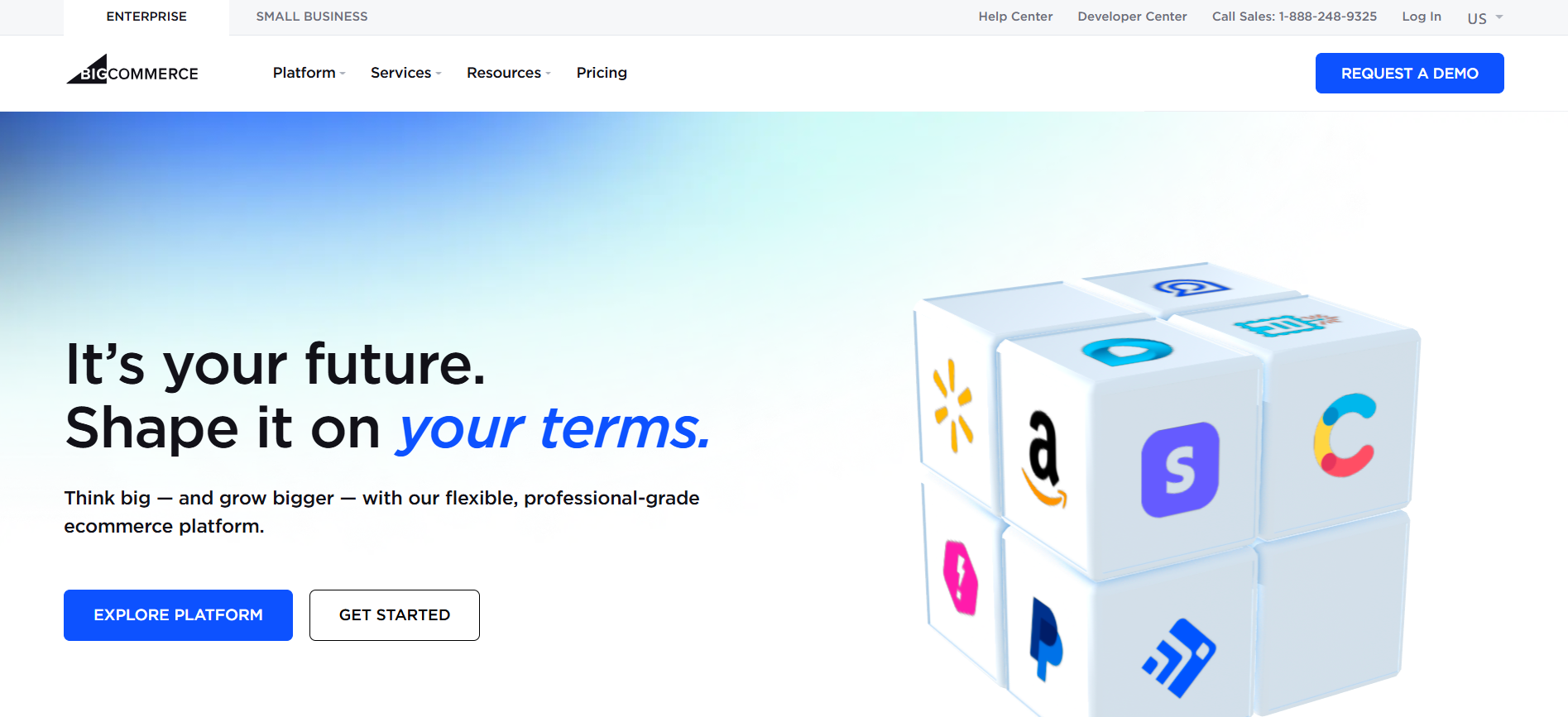
BigCommerce stands out as a powerful solution for growing brands that need more advanced SEO capabilities without sacrificing ease of use.
What makes BigCommerce particularly strong for SEO is its flexibility with URL structures, which gives store owners greater control over their SEO strategy.
Unlike some competitors, BigCommerce allows for fully customizable URLs without forced parameters that could dilute keyword relevance.
Pros:
- SEO-friendly URL structure with automatic redirects.
- Built-in AMP support for enhanced mobile optimization.
- Impressive page load speeds even with larger catalogs.
- Scales effectively for enterprise-level operations.
Cons:
- Design customization may require coding knowledge.
- Additional SEO apps can increase overall platform costs.
✅ For businesses scaling rapidly, BigCommerce provides enterprise-grade SEO tools that grow with your store.
3. WooCommerce

WooCommerce continues to be the preferred choice for businesses that prioritize complete control over their SEO strategy.
As a WordPress-based solution, it inherits the robust SEO foundation that makes WordPress powers over 40% of all websites online.
What truly sets WooCommerce apart is its seamless integration with WordPress’s content management capabilities.
This makes it ideal for stores employing content-driven SEO strategies, as blog posts, product descriptions, and category pages can all be optimized with the same powerful tools.
Pros:
- Complete control over all SEO elements through WordPress integration.
- Extensive plugin options for advanced SEO optimization.
- Excellent for content marketing integration.
- Cost-effective for small to medium businesses.
Cons:
- Performance depends heavily on hosting quality and configuration.
- Requires more technical knowledge to implement SEO best practices.
- Maintenance responsibility falls on the store owner.
✅ The platform’s extensive plugin ecosystem includes specialized SEO tools like Yoast and Rank Math, which provide advanced optimization features.
4. Adobe Commerce (Magento)
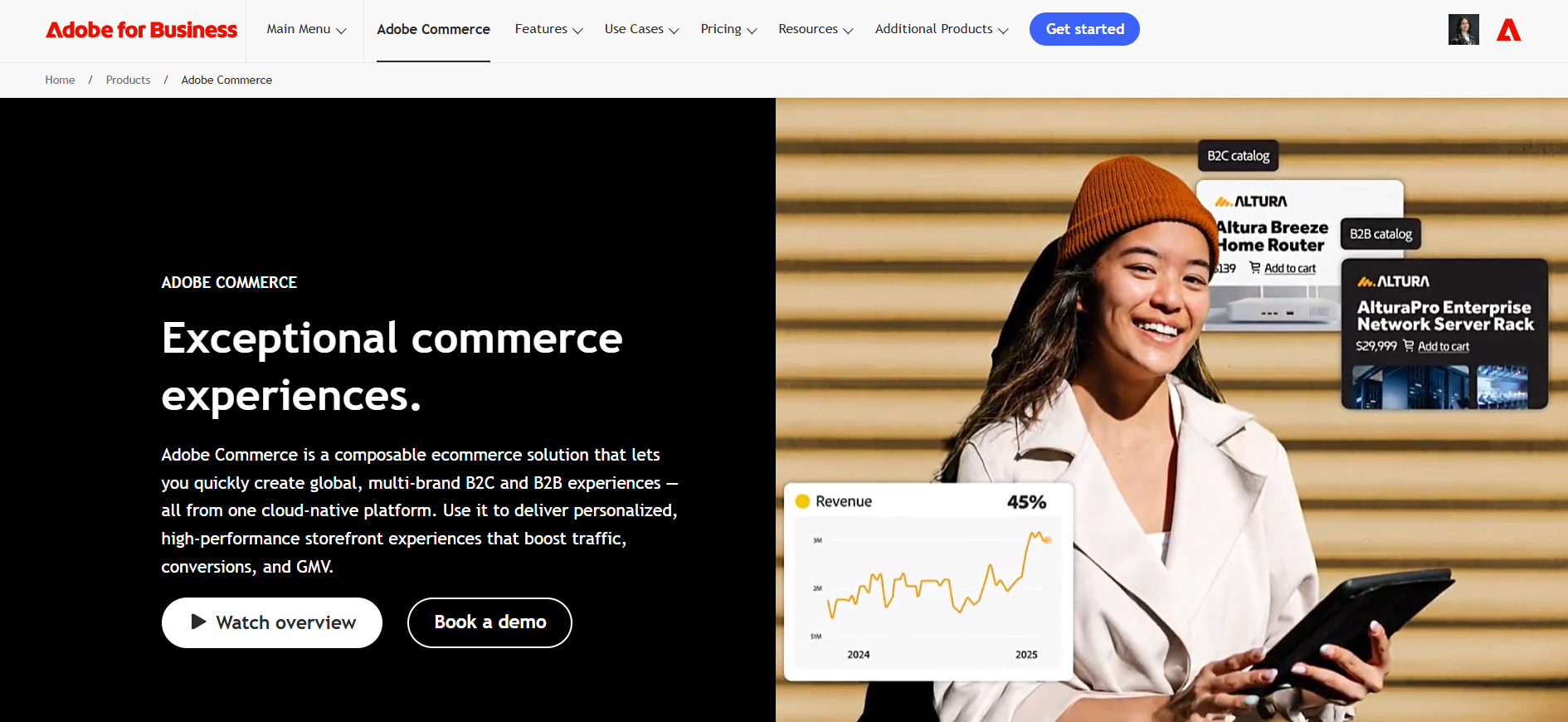
Adobe Commerce, formerly known as Magento, remains the enterprise-level choice for large businesses requiring sophisticated SEO capabilities.
The platform offers unmatched flexibility for companies with the technical resources to leverage its extensive features.
What distinguishes Adobe Commerce in the SEO realm is its architectural approach to optimization.
It allows deep customization of every technical SEO element, from schema markup to server-side rendering options that can dramatically improve crawlability and indexation.
Pros:
- Enterprise-grade SEO capabilities with unlimited customization.
- Advanced multi-store and multi-language SEO options.
- Superior handling of complex product relationships.
- Robust caching and performance optimization tools.
Cons:
- Significant technical expertise required.
- Higher implementation and maintenance costs.
- Steeper learning curve compared to other platforms.
✅ The platform’s B2B capabilities also extend to its SEO functionality, with specialized features for optimizing complex catalog structures and product relationships that are common in business-to-business eCommerce.
5. Wix eCommerce
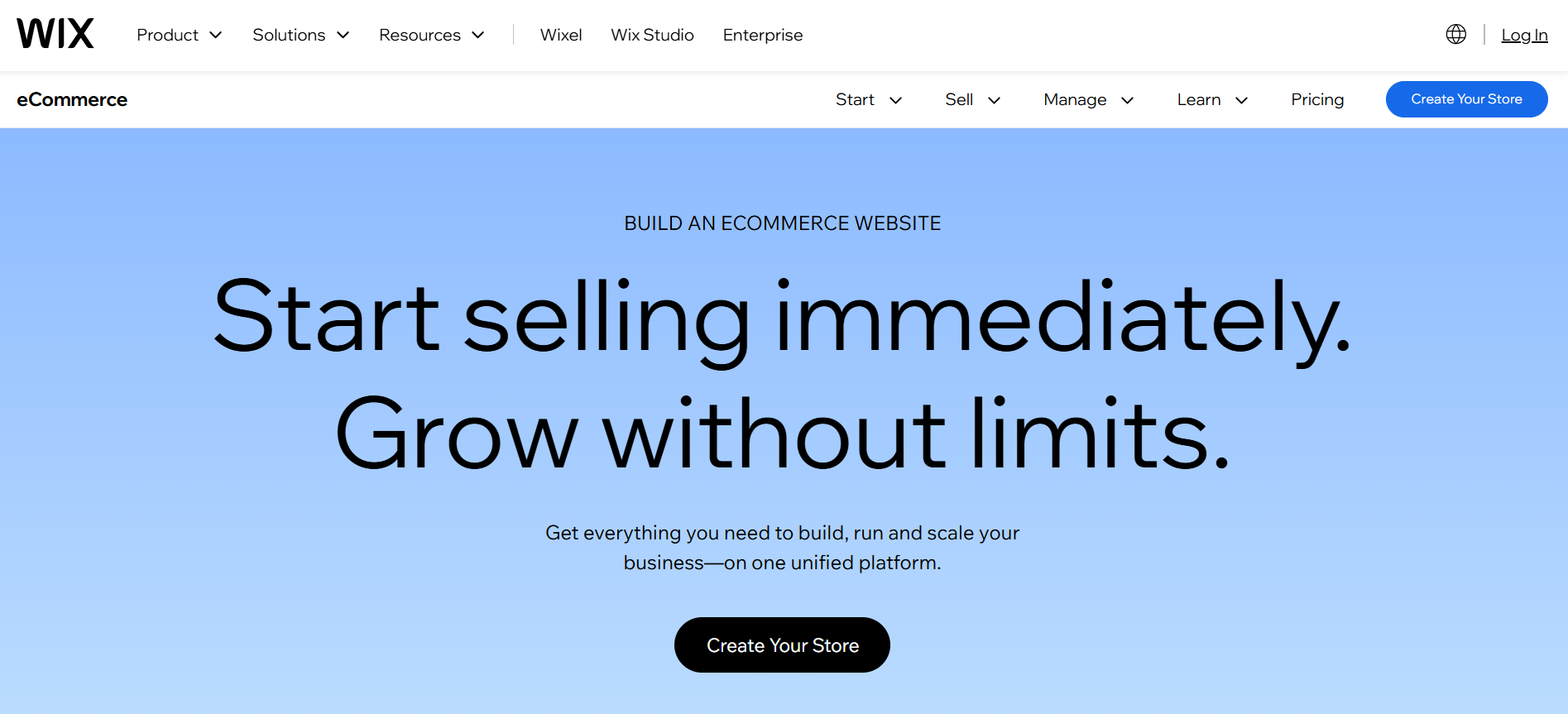
Wix has transformed from a basic website builder to a capable eCommerce platform with increasingly sophisticated SEO features.
For small businesses entering the online retail space, Wix offers an accessible entry point without sacrificing fundamental SEO capabilities.
The platform’s Wix SEO Wiz provides guided optimization that helps newcomers implement best practices without extensive knowledge.
Recent platform updates have addressed previous SEO limitations, with improvements to URL structures, mobile responsiveness, and page loading speeds.
Pros:
- Intuitive SEO tools designed for beginners.
- Improved technical SEO foundations.
- Strong mobile optimization.
- No technical skills required for basic SEO implementation.
Cons:
- Limited advanced SEO customization.
- Less scalable for larger catalogs.
- Fewer integration options with specialized SEO tools.
✅ While not as powerful as enterprise solutions, Wix’s SEO capabilities now include essential features like customizable meta tags, structured data support, and 301 redirects management.
6. Volusion

Volusion occupies a specific niche in the eCommerce platform landscape, catering to businesses that need straightforward SEO functionality without excessive complexity.
The platform focuses on providing essential optimization tools that address core ranking factors.
What makes Volusion noteworthy is its built-in SEO suite that handles foundational elements like meta tags, custom URLs, and image optimization.
These features are integrated directly into the product management workflow, streamlining the optimization process.
Pros:
- Integrated SEO tools within the product management system.
- Good analytics for tracking SEO performance.
- Solid handling of basic technical SEO requirements.
- User-friendly interface for non-technical users.
Cons:
- Limited content marketing capabilities.
- Fewer advanced customization options.
- Smaller app ecosystem for extending SEO functionality.
✅ While not as feature-rich as some competitors, Volusion’s streamlined approach can be advantageous for businesses that prefer simplicity over comprehensive customization options.
7. PrestaShop
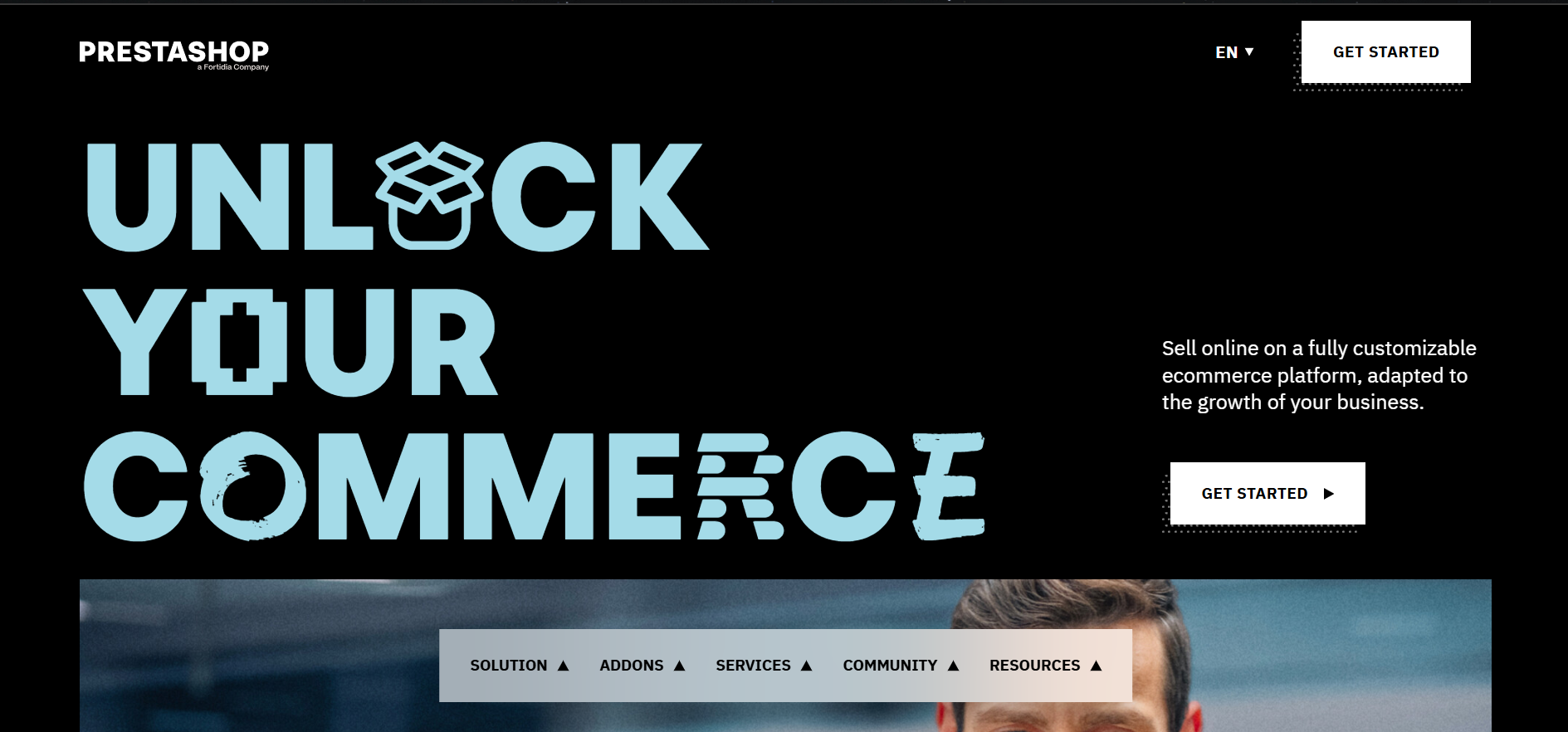
PrestaShop continues to be a popular open-source option for businesses seeking a balance between customization and usability.
The platform provides robust SEO features that can be further extended through its active module marketplace.
From an SEO perspective, PrestaShop excels in product catalog optimization.
The platform’s architecture is designed to handle large numbers of products while maintaining clean URL structures and proper hierarchical organization.
Pros:
- Strong product catalog SEO capabilities.
- Extensive customization options for technical SEO.
- Active community developing SEO-focused modules.
- Good multi-store SEO management.
Cons:
- Requires more technical knowledge than SaaS alternatives.
- Performance optimization needs careful attention.
- Quality varies among third-party SEO modules.
✅ Community support remains one of PrestaShop’s strengths, with regular updates and extensions that address evolving SEO best practices and technical requirements.
8. Squarespace Commerce

Squarespace Commerce has significantly improved its SEO capabilities, positioning itself as a design-forward platform that doesn’t sacrifice search optimization.
The platform now offers a more comprehensive set of SEO tools integrated into its streamlined interface.
The platform’s strengths lie in its mobile optimization and clean code structure, both contributing positively to technical SEO performance.
Squarespace sites typically score well on core web vitals metrics, which have become increasingly important ranking factors.
Content presentation is where Squarespace truly excels, with templates designed to showcase products and related content in ways that enhance both user experience and SEO.
Pros:
- Excellent mobile optimization and page speed.
- Clean code structure beneficial for technical SEO.
- Superior visual presentation of products and content.
- Improved schema markup support.
Cons:
- Less flexibility in URL structure customization.
- Fewer advanced SEO features compared to dedicated eCommerce platforms.
- Limited third-party integration options for specialized SEO tools.
✅ Recent updates have improved Squarespace’s handling of structured data and schema markup, addressing previous limitations in its technical SEO capabilities.
9. Salesforce Commerce Cloud
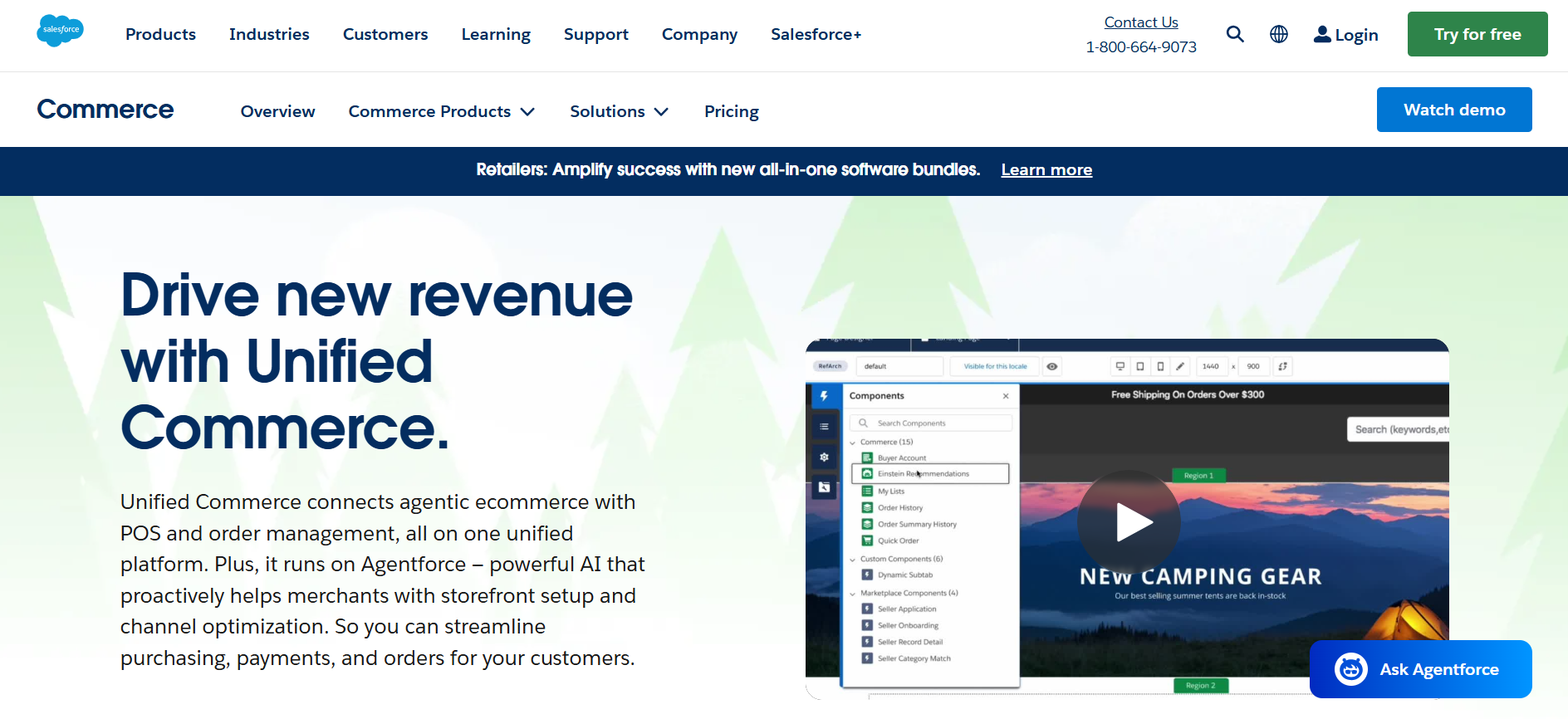
Salesforce Commerce Cloud represents the enterprise end of the spectrum, offering sophisticated SEO capabilities designed for large-scale eCommerce operations.
The platform provides advanced features that address the complex optimization needs of major brands.
What distinguishes Salesforce Commerce Cloud is its AI-powered SEO recommendations, which leverage machine learning to identify optimization opportunities.
This automation helps enterprise teams prioritize SEO efforts more effectively.
The platform excels in international SEO, with robust hreflang implementation and localization features that support global expansion.
Pros:
- AI-powered SEO recommendations and automation.
- Enterprise-grade international SEO capabilities.
- Seamless integration with marketing cloud for content optimization.
- Advanced personalization supporting content relevance.
Cons:
- Significant investment required.
- Complex implementation process.
- Steep learning curve for marketing teams.
✅ Integration with Salesforce’s broader ecosystem provides additional SEO advantages, including customer data utilization for creating highly relevant, personalized content that performs well in search.
10. OpenCart
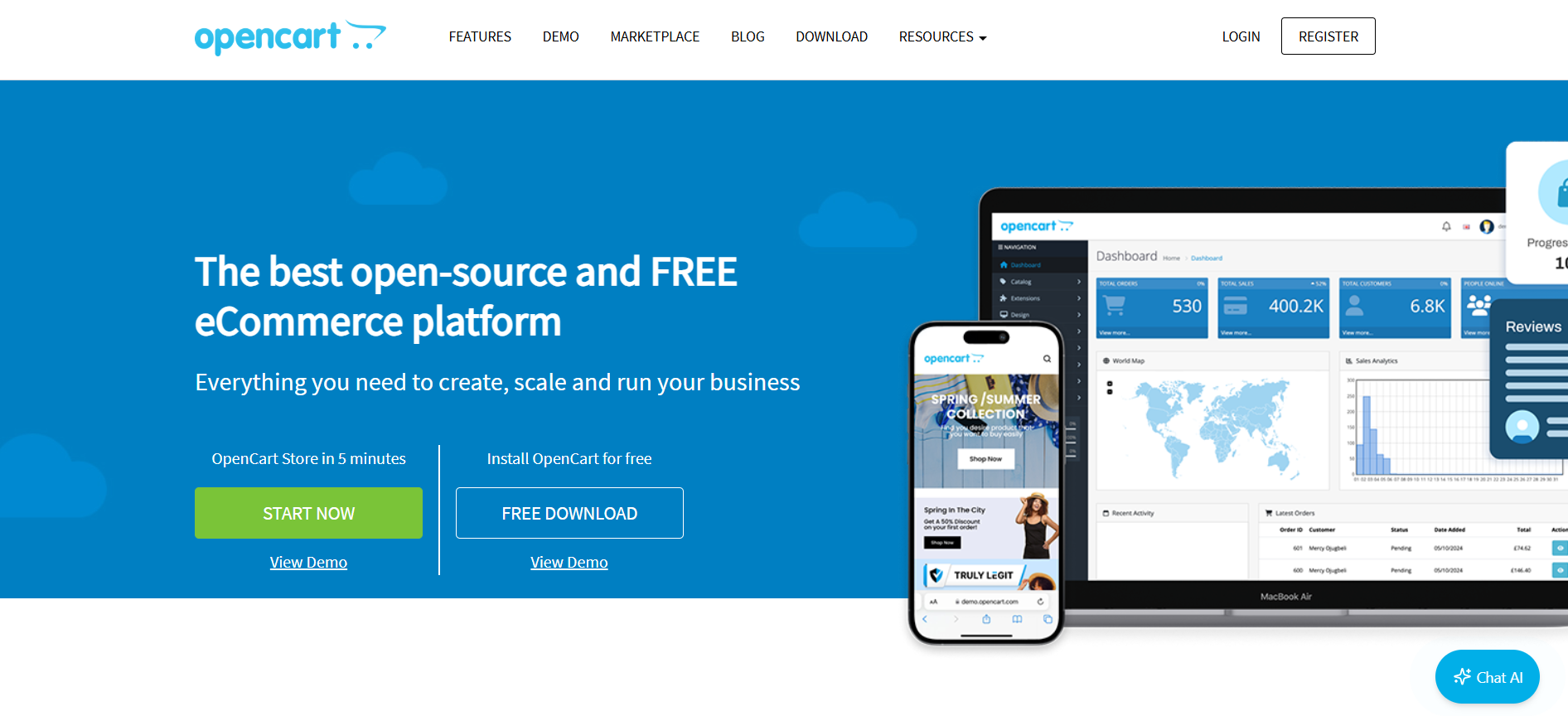
OpenCart maintains its position as an accessible open-source option with solid SEO fundamentals.
It offers a lightweight framework that contributes to faster page loading times, a significant advantage for search ranking.
From an SEO perspective, OpenCart provides essential optimization tools out of the box, with a straightforward approach to meta tags, URLs, and sitemaps.
The platform’s architecture supports clean category structures that facilitate logical site organization.
Pros:
- Lightweight framework contributing to faster page speeds
- Straightforward SEO fundamentals
- Extensive marketplace of SEO extensions
- Cost-effective for small to medium businesses
Cons:
- Requires development knowledge for advanced customizations
- Less robust content management compared to WordPress-based solutions
- Quality varies significantly among extensions
✅ For businesses with limited budgets but specific SEO requirements, OpenCart offers a customizable foundation that can be tailored to particular optimization strategies.
11. Shopware
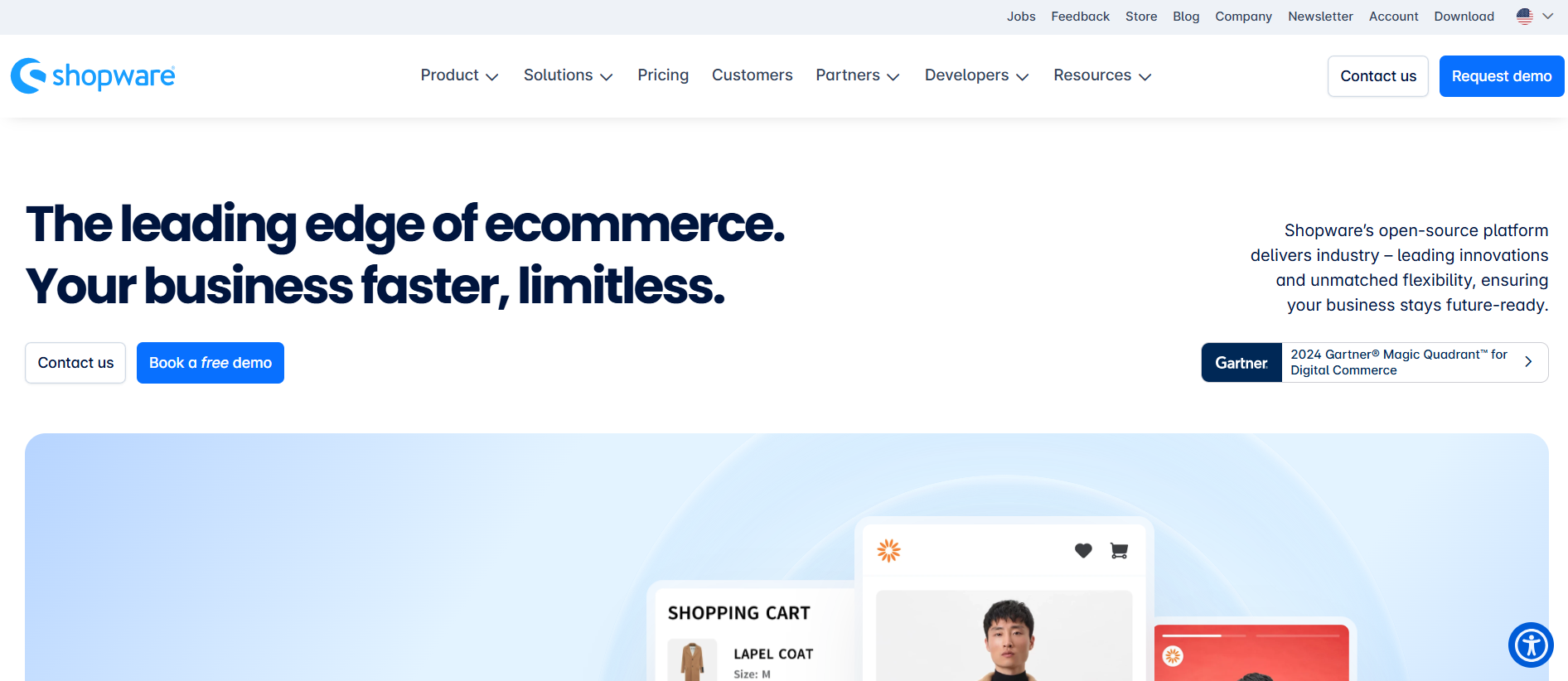
Shopware has gained significant traction as an SEO-friendly eCommerce solution, particularly in European markets.
It combines technical SEO excellence with strong content management capabilities.
What makes Shopware stand out is its “Shopping Experiences” feature, which allows for the creation of content-rich, customized landing pages without technical limitations.
This capability directly supports content-driven SEO strategies that blend commerce with valuable information.
Pros:
- Superior content management supporting SEO strategies.
- Strong technical SEO foundations.
- Excellent handling of product variants and relationships.
- Advanced customer experience features that support engagement metrics.
Cons:
- Smaller extension marketplace compared to more established platforms.
- Less widespread adoption means fewer specialized SEO agencies with platform expertise.
- Steeper learning curve for non-technical users.
✅ For businesses that want to differentiate through content while maintaining strong technical SEO foundations, Shopware offers a compelling blend of capabilities.
12. Webflow eCommerce
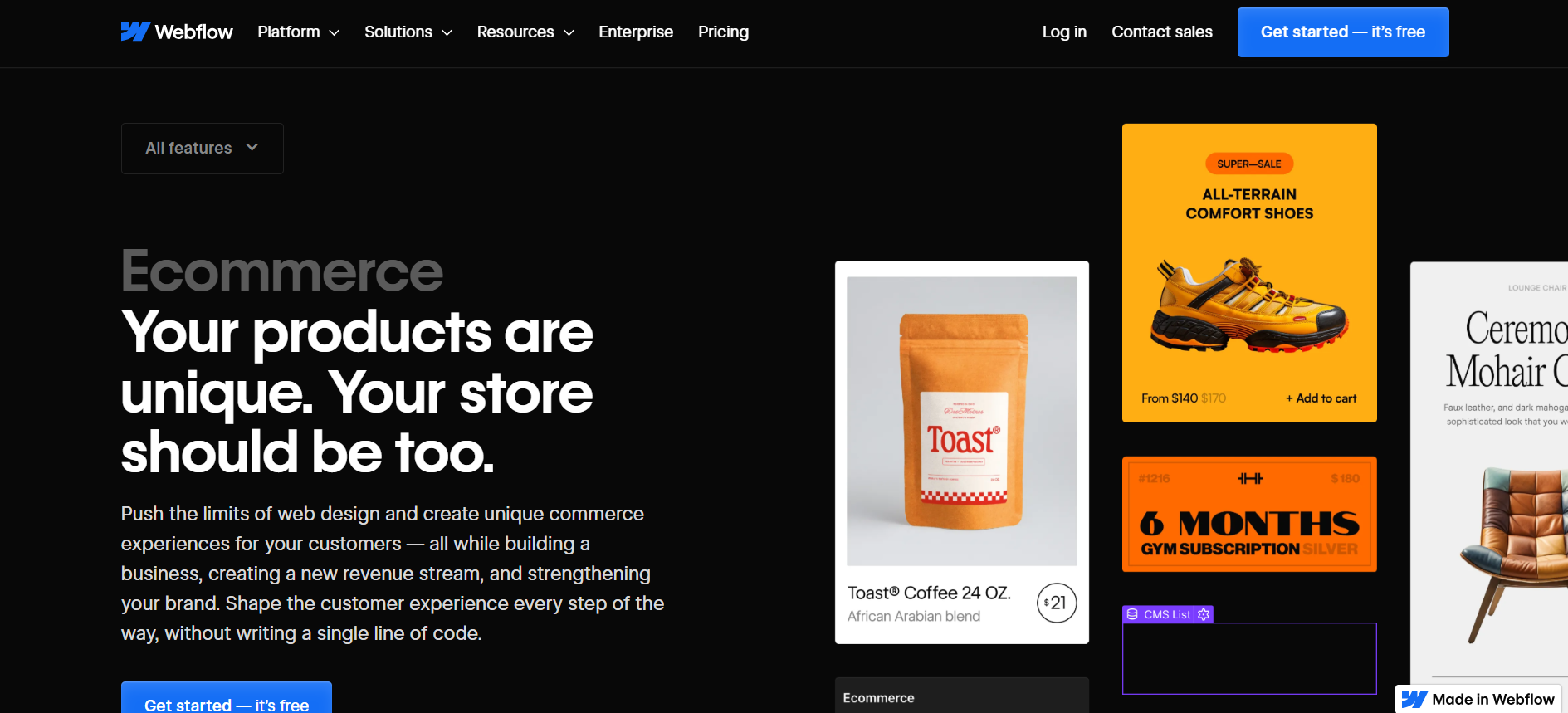
Webflow eCommerce represents a design-first approach that doesn’t compromise on technical SEO performance.
The platform has expanded its commerce capabilities while maintaining the exceptional code quality that makes it a favorite among designers.
From an SEO perspective, Webflow’s key advantage is its clean, efficient code output.
The platform generates lightweight HTML that loads quickly and is easily crawlable by search engines.
This technical excellence extends to mobile responsiveness, with flawless adaptation across devices.
Webflow’s visual CMS provides unique opportunities for creating rich, structured content that supports both user engagement and search visibility.
Pros:
- Exceptional code quality and page speed.
- Superior design flexibility without SEO compromises.
- Strong content management capabilities.
- Excellent mobile optimization.
Cons:
- Commerce features less comprehensive than dedicated eCommerce platforms.
- Higher learning curve for non-designers.
- More limited in handling very large product catalogs.
✅ For brands where design quality and page experience are competitive differentiators, Webflow offers a compelling combination of visual control and technical performance.
13. Neto (Maropost Commerce Cloud)
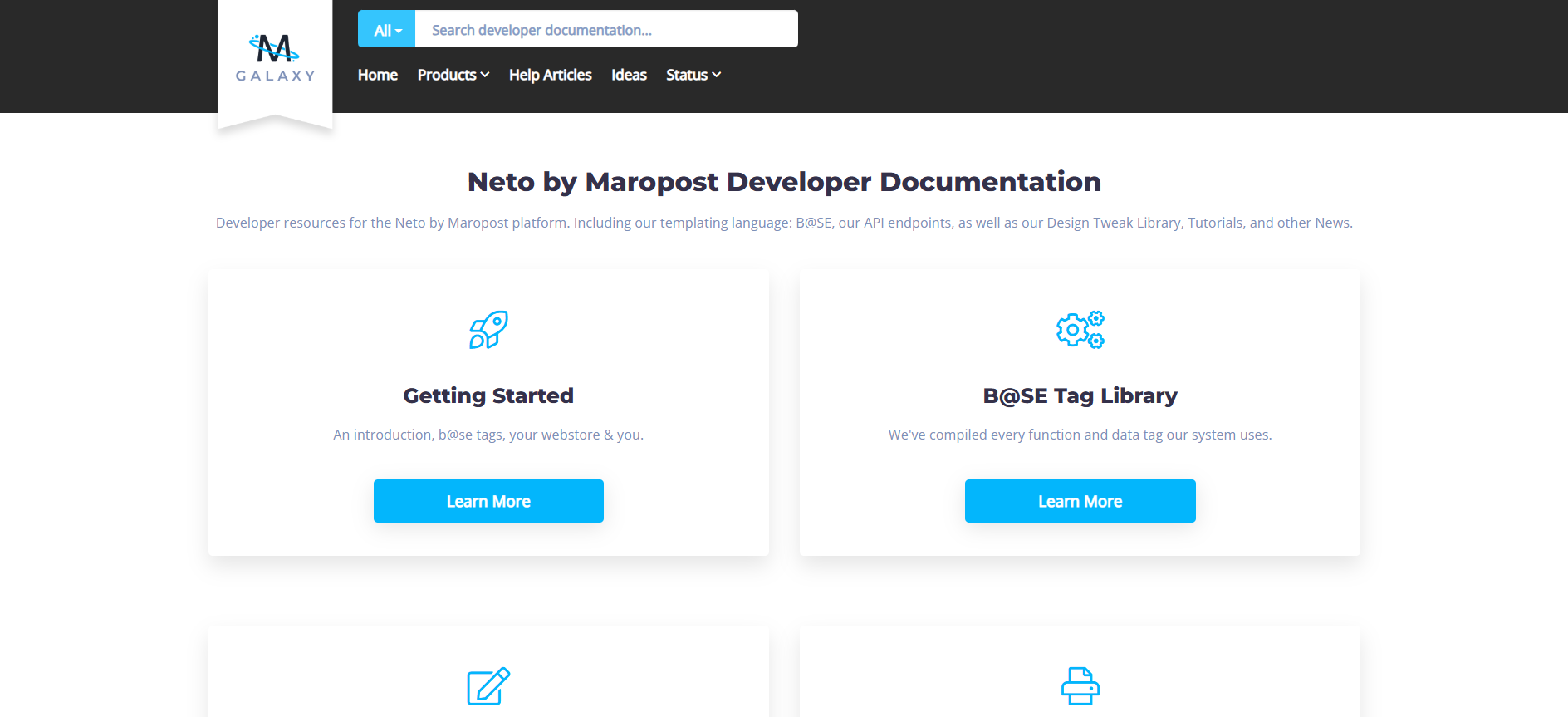
Maropost Commerce Cloud (formerly Neto) has established itself as a specialized eCommerce solution with substantial SEO capabilities.
The platform focuses particularly on the needs of Australian and New Zealand merchants while offering features that benefit global SEO performance.
The platform’s strength lies in its holistic approach to optimization, with built-in tools addressing both on-page and technical SEO factors.
Maropost provides comprehensive schema markup options, automated XML sitemaps, and canonical tag management.
Pros:
- Comprehensive built-in SEO tools.
- Strong multi-channel optimization capabilities.
- Regional expertise for ANZ markets.
- Integrated POS and marketplace management with SEO considerations.
Cons:
- Less global recognition compared to larger platforms
- Smaller ecosystem of specialized SEO extensions
- More regional focus may limit some international SEO features
✅ For businesses requiring regional expertise combined with solid SEO foundations, Maropost Commerce Cloud offers specialized features that address specific market needs.
14. Craft Commerce
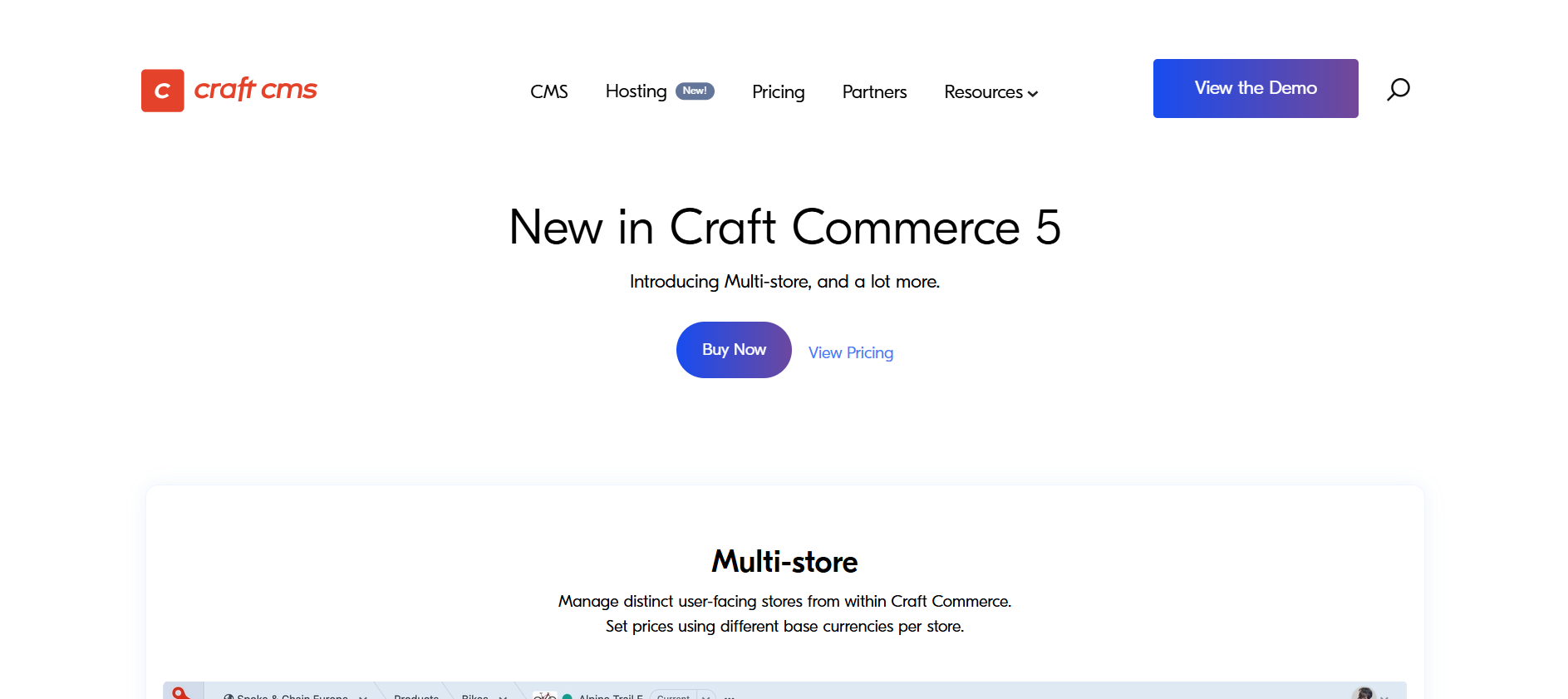
Craft Commerce represents a content-first approach to eCommerce that yields significant SEO advantages.
Built on the Craft CMS foundation, the platform excels at blending content and commerce in ways that support sophisticated SEO strategies.
The platform’s flexible content modeling allows for highly customized product presentations and related content, creating rich contextual environments that can target specific keyword clusters effectively.
This adaptability extends to URL structures, taxonomy, and site architecture.
From a technical perspective, Craft Commerce outputs clean, efficient code that contributes to fast page loading and excellent core web vitals scores.
Pros:
- Exceptional content flexibility supporting advanced SEO strategies.
- Complete control over technical SEO elements.
- Superior performance and core web vitals scores.
- Highly customizable information architecture.
Cons:
- Requires development expertise to implement effectively.
- Steeper learning curve for content managers.
- Smaller community compared to more mainstream platforms.
✅ For businesses with complex content needs and sophisticated SEO strategies, Craft Commerce offers unparalleled flexibility without sacrificing technical performance.
15. Ecwid

Ecwid takes a unique approach as a versatile eCommerce solution that can be integrated into existing websites, including those built on WordPress, Wix, or custom platforms.
This flexibility makes it a valuable option for businesses with established web presences seeking to add optimized commerce capabilities.
From an SEO perspective, Ecwid’s advantage lies in its ability to leverage the existing SEO equity of a website while adding commerce functionality.
The platform creates SEO-friendly product pages that inherit domain authority from the parent site.
The platform now supports more comprehensive schema markup for products, including reviews and availability information.
Pros:
- Leverages existing website SEO equity.
- Creates SEO-friendly product pages with rich schema markup.
- Minimal impact on existing site performance.
- Multi-channel selling with consistent SEO elements.
Cons:
- Less comprehensive than dedicated eCommerce platforms.
- Limited design customization compared to standalone solutions.
- Dependent on the host platform for some SEO elements.
✅ For businesses with strong content sites looking to add commerce capabilities without rebuilding their SEO foundation, Ecwid provides a streamlined solution that preserves existing search equity.
Choosing the Right eCommerce Platform for SEO
Selecting the ideal platform requires careful consideration of your business size, technical capabilities, and long-term growth strategy.
Larger catalogs with complex relationships may require more robust solutions, such as Adobe Commerce or BigCommerce, while smaller inventories may be well-served by simpler platforms.
✅ Consider your internal technical resources when making this decision.
✅ Evaluate your content strategy requirements as well.
If content marketing forms a core part of your SEO approach, platforms with strong CMS capabilities like WooCommerce or Craft Commerce may offer advantages over more commerce-focused solutions.
Technical SEO Considerations for eCommerce Platforms
Technical SEO fundamentals vary significantly across platforms.
Look for solutions that provide control over URL structures, canonical tags, and robots.txt files without requiring custom development.
- Page speed has become increasingly critical for both user experience and search rankings.
- Platforms with efficient code, effective caching, and content delivery network (CDN) integration typically perform better in this area.
- Mobile optimization is non-negotiable in 2025.
✅ Ensure your chosen platform delivers responsive design with appropriate viewport configurations and touch-friendly interfaces that meet Google’s mobile-friendly requirements.
✅ Look for solutions that support comprehensive schema markup for products, reviews, prices, and availability to enhance rich snippet opportunities in search results.
The Importance of Keyword Research for eCommerce SEO

Effective keyword research forms the foundation of any successful eCommerce SEO strategy, regardless of platform choice.
Identify terms with commercial intent that align with your product offerings.
Your platform should support the creation of content that targets these detailed search phrases effectively.
Competitor analysis should inform your keyword strategy.
Analyze which terms drive traffic to similar stores and identify opportunities where you can compete effectively based on your unique selling propositions.
Consider search intent carefully when targeting keywords.
FAQ: eCommerce Platforms for SEO
Got more questions? We got the answers!
Q: How important is domain authority for eCommerce SEO?
Domain authority has a significant impact on eCommerce SEO performance.
Higher authority sites typically rank more easily for competitive terms.
Building domain authority requires consistent content creation, earning quality backlinks, and maintaining technical excellence.
Your platform choice affects how effectively you can implement these strategies.
Q: What are the most critical technical SEO factors for eCommerce websites?
The most critical technical factors include site speed, mobile optimization, structured data implementation, crawlability, and indexation control.
Additional considerations include handling of faceted navigation, management of duplicate content, and implementation of canonical tags.
Different platforms offer varying levels of control over these elements.
Q: How does site speed affect eCommerce SEO, and which platforms perform best?
Site speed directly impacts both user experience and search rankings.
Platforms with efficient code bases, effective caching mechanisms, and CDN integration typically perform best.
In 2025, BigCommerce, Shopify, and Craft Commerce generally offer superior speed performance without extensive customization.
Q: Can I improve SEO on a platform with limited built-in capabilities?
Yes, but with varying degrees of effort.
Some limitations can be addressed through third-party apps or custom development.
However, fundamental architectural constraints may require workarounds that add complexity and maintenance overhead.
Evaluate whether the required customizations justify staying on a platform with limited native SEO features.
Q: How should multi-language or multi-regional stores approach platform selection for SEO?
Multi-language and multi-regional stores should prioritize platforms with robust hreflang implementation, region-specific domains or subfolders, and localized content management.
Enterprise solutions like Adobe Commerce and Salesforce Commerce Cloud excel in this area, while WooCommerce offers powerful multi-site capabilities with appropriate plugins.
Conclusion
Not all eCommerce platforms for SEO are perfect for everyone, what works best depends on your business goals, resources, and how far you want to take your SEO.
Shopify is great for businesses that want simplicity with strong built-in SEO tools, while BigCommerce offers more flexibility for scaling brands ready to go deeper.
If content is your main driver, WooCommerce brings powerful SEO potential through WordPress.
And for large enterprises with complex needs, Adobe Commerce or Salesforce Commerce Cloud offer the depth and customization that advanced teams require.
But remember, your platform is just the beginning. SEO success comes from consistent effort, smart strategy, and staying up to date with what works.
👉 Want to go deeper into platform comparisons, SEO strategies, and actionable tips? Check out our blog for expert insights to help your store grow faster, rank higher, and sell smarter.








